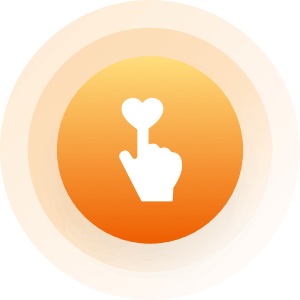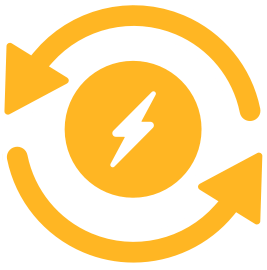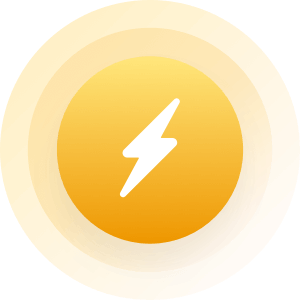| Topic: You and Your Doctor - The NEW Relationship ... | |
|---|---|
|
Edited by
Kings_Knight
on
Mon 04/26/10 02:01 PM
|
|
|
Do you like being able to have your doctor examine you, ask you questions about your symptoms, respond to your questions about his diagnosis and prescribed treatment for your problem ... ? Do you like that, bunkie ... ? Do ya feel lucky today ... punk ... ? Well, DO ya ... ?
All that you know and all that you feel and all that you think about your doctor/patient relationship is about to go away - to be replaced with the 'magic' of 'DeathCare' ... In-office visits? Forget THAT. And if you don't have what they're jokingly calling a 'broadband' internet connection, well ... YOU GONNA DIE .. ! Bandwidth is already tight - and they're gonna make it TIGHTER by requiring that you see your doctor ONLINE ... ? Yeah. Momma, tell me again why this 'DeathCare' is so much better than what we had ... I really don't like the idea that a doctor can read a monitor that's displaying my telemetry and decide to REMOTELY change my medication dosage ... call me skeptical ... This. Needs. To. Be. Repealed. ~~~~~~~~~~~~~~~~~~~~~~~~~~ http://cnsnews.com/news/article/64663 Senate Panel Previews Electronic Health Technology Monday, April 26, 2010 | By Matt Cover, Staff Writer (CNSNews.com) – The Senate Committee on Aging last week offered a preview of the government’s future role in health care, showing how Americans will interact with doctors and other health care providers. The demonstration offers a glimpse at an overlooked effect of health care reform. The effort, loosely called e-Health or e-Care, combines health-care technology with 21st-century Internet connectivity. It will allow doctors to interact with their patients through innovations such as video chats, telephone health checkups, and home-health monitoring devices that relay data over wireless Internet connections. “The development of the broadband network and health information technologies has the potential to truly transform health care and simultaneously enable better outcomes and lowering costs,” said Sen. Susan Collins (R-Maine). One of the new health technologies on display last Thursday was an automatic drug dispenser that can monitor and adjust medication dosages wirelessly, allowing doctors to tailor dosages of drugs such as insulin without having to schedule in-person visits with patients. “What we’re talking about, folks, is using a device like this one,” Sen. Ron Wyden (D-Ore.) said, as he displayed the small device. “It attaches to the patient’s skin and is loaded with drugs that are administered in the exact way that the doctor prescribes – wirelessly. “That means that a doctor can vary the doses based on the information the doctor is receiving [from the monitor]. The patient doesn’t have to go in to the doctor and then the pharmacy to change his or her prescription,” he said. The data recorded by such devices would be automatically uploaded to a patient’s electronic health record, which could then be reviewed by a doctor from a computer or smart phone, allowing the doctor to monitor a sick patient in almost real time. “This device here connects to other devices that measure a patient’s blood pressure and glucose [sugar] levels – things that any doctor treating a diabetic patient wants to know about,” Wyden said. “It wirelessly uploads this data to an electronic medical health record that is monitored by a health care professional.” The key to the new health care technology is broadband Internet connectivity, Wyden explained, because new technologies such as home monitors and new methods such as video conferencing require high-speed connections. “What all these devices and technologies require is access to a high-speed Internet connection, or what is commonly called broadband,’” he said. In adopting these new technologies, the government aims is to reduce the cost of Medicare by changing the way it pays doctors, who would be allowed to bill for Internet-based "visits" with patients instead of in-person visits. |
|
|
|
|
|
Wut a bunch of shiite!
I can barely afford dial-up! |
|
|
|
|
|
I don't know what your problem is, here, "bunkie".
But this sounds like a damn good idea to me. I hate going to the doctor. |
|
|
|
|
|
I don't know what your problem is, here, "bunkie". But this sounds like a damn good idea to me. I hate going to the doctor.      
Not to mention folks who live miles from the nearest healthcare provider or who have trouble getting transportation. So what ya got against technology "bunkie"????????? |
|
|
|
|
|
One of the new health technologies on display last Thursday was an automatic drug dispenser that can monitor and adjust medication dosages wirelessly, allowing doctors to tailor dosages of drugs such as insulin without having to schedule in-person visits with patients.
*********************************************************************** That sounds great for older people that aren't able to get out much. Other people won't have to take off work as much either. |
|
|
|
|
|
Humm? What about the patients who do not know how to use a computer?
Talking the very elderly here, and people who have no access to the web? Many people can't afford the internet and don't even own a computer. Is this new health care going to provide them with one AND pay the bills? |
|
|
|
|
|
Maybe it's just for people that do have computers.
|
|
|
|
|
|
and if the electric goes out durning a storm? What then? I know my pc battery doesn't hold out long, and I'm not paying the price for a "smart phone"...and I have a full time job and still can't afford one. I only have an air card...no internet at all as I live in the country...signals comes and goes...what about those that live out like me?
|
|
|
|
|
|
this could be a good thing which allows people more access to doctors without a trip to the doctors office. obviously others will be able to see a doctor in the office no problem. just another way to get competent medical care. no boogieman here.
you just go to your doctor as usual if you like. 
swbd |
|
|
|
|
|
74% of Americans use the internet = 227,719,000
Of that number only 69,902,289 have broadband (don't ask me to give a percentage)But it would be around give or take somewheres around 30% of internet users. So that leaves what around 70% of Americans who wouldn't have access to the program. Doesn't seem fair. But I'm sure those who can use it will like it. |
|
|
|
|
|
Okay folks calm down.
It is not meant to take the place of primary care. It is only to facilitate that care, to make things a little easier for people who do have broadband, know how to use it, and do not need to go, or have a hard time getting, to their doctors office. They are not going to replace your doctor with the internet. |
|
|
|
|
|
Just imagine....there's ice on the road and you need an insulin dosage adjustment and you don't even have to leave the house.
|
|
|
|
|
|
Just imagine....there's ice on the road and you need an insulin dosage adjustment and you don't even have to leave the house. What if it's summertime 
|
|
|
|
|
|
Just imagine....there's ice on the road and you need an insulin dosage adjustment and you don't even have to leave the house. What if it's summertime 
Then there wouldn't be ice on the roads.  
|
|
|
|
|












